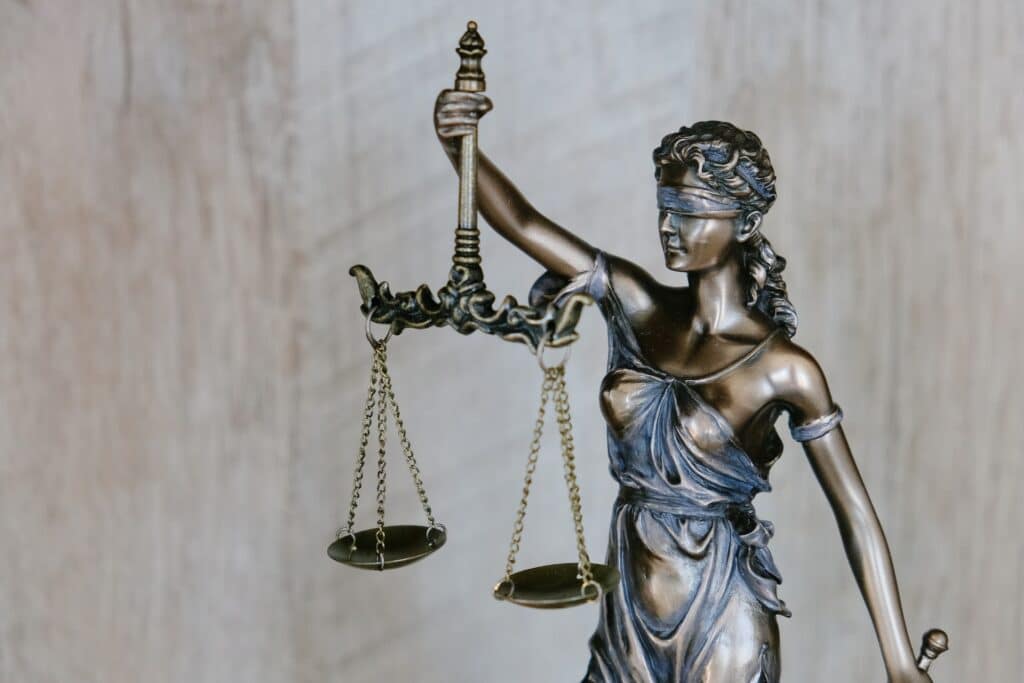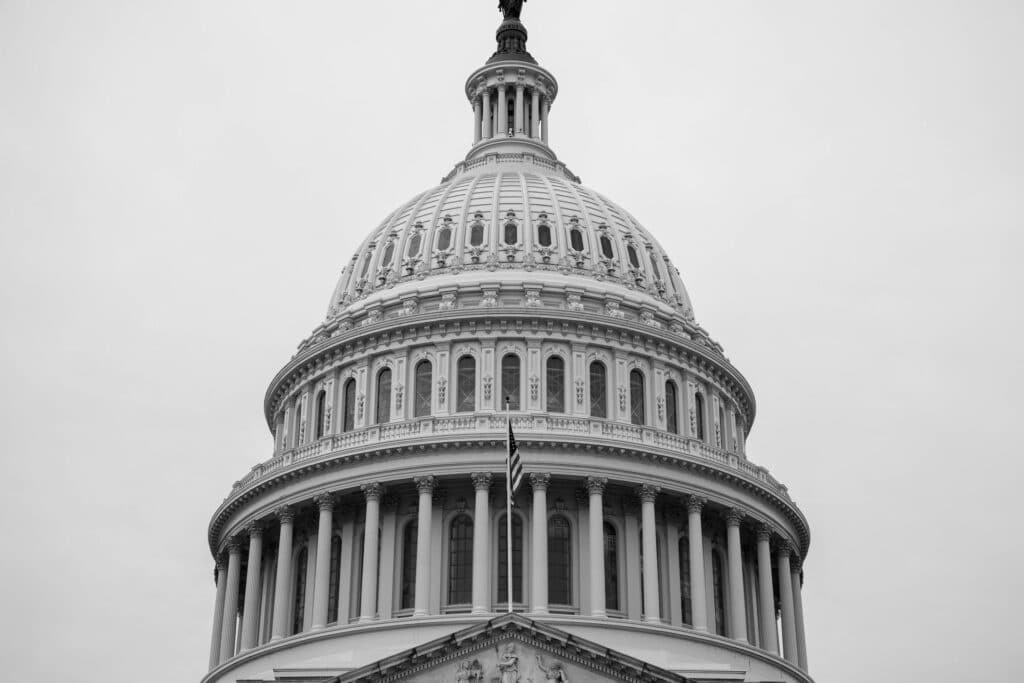You have legal rights as a consumer in the United States. If something goes wrong, it’s important to know your rights and when it may be time to consult an attorney for legal advice or even file a lawsuit.
Every year, the average American spends over $14,000 on products like food, clothing, and personal care items.
We typically expect that the things we buy will work properly and safely. Unfortunately, sometimes there’s a problem.
Most issues aren’t serious—maybe we return the item for a refund or lose a bit of money. But in the worst situations, things can go seriously wrong.
Products that don’t work properly or are unsafe can cause severe injuries—or even death. The Consumer Product Safety Commission estimates that defective products cost the country about $1 trillion annually.
This shows why it’s so important to know your consumer rights when buying products.
U.S. Consumer Rights
The first U.S. president to advocate for consumer civil rights was John F. Kennedy. In a 1962 speech to Congress, he outlined four basic rights that became known as the “Consumer Bill of Rights.”
These rights are:
- The Right to Be Informed: You have the right to accurate advertising and labels. Deceptive marketing practices will not be tolerated.
- The Right to Choose: You have the right to choose from a wide range of products with fair prices.
- The Right to Safety: You have the right to be protected from dangerous goods and services.
- The Right to Be Heard: You have the right to join and form consumer groups to ensure that your voice is heard when it comes to enacting and enforcing laws and policies that affect consumer interest.
Many states and federal laws today use these principles to protect consumers.
After Kennedy introduced the Consumer Bill of Rights, more civil rights were added over time. The United Nations for Consumer Protection expanded on President Kennedy’s ideas by adding the following rights:
- Consumer Education: Making sure consumers have all the information they need before making a purchase.
- E-Commerce Rights: Making sure online shopping is safe for everyone.
- Economic Interest Protections: Enacting legislation that protects consumers’ economic interests.
- Inclusivity: Offering protections to all consumers, especially those who might be underprivileged.
- Privacy: Safeguarding consumer information to maintain privacy rights.
- Redress Opportunities: A legal procedure to address product defects and request compensation for damages.
- Sustainability: Encouraging purchasing habits that are good for the environment.

Consumer Protection Agencies
There are a number of laws and agencies that work to keep U.S. buyers safe at the national, state, and local levels.
Every state has its own set of laws to prevent deceptive and unfair business practices, and each state has its own consumer protection office to ensure that these laws are followed. They audit businesses, research complaints, and can take legal action if necessary.
If you need to file a complaint or contact your local consumer protection office, you can visit USA.gov to find their contact information. This helpful website has a database with the names, email address, phone numbers, and websites of each state’s consumer protection representatives.
Sadly, the Unfair and Deceptive Acts and Practices (UDAP) laws in most states aren’t as strong as they should be. According to the National Consumer Law Center, most states only ban a few specific deceptive business practices. Furthermore, they often require consumers to navigate procedural obstacles, which can make these laws difficult to enforce.
Federal Agencies
The U.S. federal government also has a number of agencies and federal laws aimed at protecting consumers.
The Consumer Product Safety Commission (CPSC), is tasked with protecting the public from safety and health dangers linked to consumer products. In order to minimize the risk of injury and death, the agency is responsible for issuing product recalls. They also perform investigations, educate the public on possible risks, and collaborate with businesses to create industry safety standards.
Certain types of services and products have their own watchdog agencies. For example, the U.S. Food and Drug Administration (FDA) oversees food, drugs, and medical devices, while the National Highway Traffic Safety Administration is responsible for car safety and automobile recalls.
The Federal Trade Commission (FTC) acts as the federal agency responsible for protecting consumers from fraud, scams, and dishonest business practices. If you believe you are a victim of a scam or deceitful marketing practices, you can file a complaint with the FTC. The agency will then use your complaint for subsequent legal action or investigations.
The Consumer Financial Protection Bureau (CFPB) was created in 2011 to protect consumers from deceptive banking and lending practices. In its relatively short existence, the CFPB has collected 1.5 million complaints and secured $12.4 billion in relief for victimized consumers.
Fact: If you’re not happy with a product or service you’ve bought, you have the legal right to ask for a refund. Contact the seller right away to try and fix the problem. If that doesn’t work, you can take legal action by filing a complaint with your local consumer protection office. You can also inform the Better Business Bureau about the issue to seek a resolution.

What is Product Liability?
Product liability is the area of civil law where manufacturers, wholesalers, and retailers can be held responsible for damages caused by defective products. To win a product liability lawsuit in state court, you need to prove four things:
- The product had a defect.
- The defect led to your injuries or losses.
- The defect itself was the cause of your injury.
- You were using the product in the right way.
roduct liability claims are usually based on legal principles like negligence, breach of warranty, and strict liability.
- Breach of warranty implies that the seller didn’t meet the terms they promised about the product’s safety or quality.
- Negligence means the maker of the product didn’t take the necessary precautions to lessen the risk of harm the product could cause.
- Strict liability holds the defendant accountable for damages caused by their faulty product, regardless of whether they intended to cause harm.
Most product liability cases involve issues with the product’s design, manufacturing, or marketing. This can include failure to provide accurate instructions or neglecting to warn consumers about possible risks.
Product Liability Lawyers
If you’ve been injured or harmed, you have the right to take legal action. For minor disputes, you can often go to small claims court. The amount of money you can claim varies by state, but generally ranges from $5,000 to $10,000.
While many people represent themselves in small claims court, you may consider hiring an attorney. In most states, corporations and businesses are required to have an attorney in court, which could put you at a disadvantage.
If you or someone you know has suffered serious injury due to a defective product, it’s recommended that you hire a lawyer with experience in product liability cases.
Major Product Liability Cases
Thousands of product liability lawsuits are filed each year, and some have led to large payouts or settlements.
For example, more than 9,300 people are suing the makers of Roundup weed killer. These lawsuits claim that long-term exposure to glyphosate, the herbicide’s active ingredient, led to non-Hodgkin lymphoma. In 2018, a California patient won a $289 million award (later reduced to $78 million) blaming the weed killer for their diagnosis.
Defective medications and medical devices are also common subjects of product liability cases. More than 2,000 people have filed lawsuits against the creators of the antipsychotic drug Abilify. These claimants argue that the medication caused them unexpected and severe side effects, including compulsive behaviors like excessive gambling, eating, and sexual urges.
Additionally, there are thousands of lawsuits against makers of prosthetic knees due to the failure of these implant replacements. In 2002, Sulzer Medica settled roughly 4,000 of these cases for $1 billion. However, similar lawsuits against other prosthetic knee manufacturers are still pending, and more are likely to be filed in the future.
Class Action Lawsuits
A consumer class action lawsuit serves as a significant legal avenue for economic redress. In such litigation, one person or a small group, known as “plaintiffs,” represent a larger group referred to as “the class.” All class members must have experienced harm from the same defective product, fraudulent practices, or illegal actions. Given the high number of people involved, trying each case separately would be impractical.
Class action suits also enable attorneys to tackle cases that might otherwise be too costly or time-consuming to pursue independently. For example, large-scale data breaches have led to recent class action lawsuits. Additional class actions involving data protection issues have sought compensation for damages ranging from intrusive robocalls to unethical debt collection practices.
Such lawsuits often result in substantial settlements distributed among the impacted class. In 2016, Volkswagen paid a $14.7 billion settlement over allegations that it used secret software in its diesel trucks to manipulate emissions tests, thereby posing environmental risks.
References
https://www.bls.gov/news.release/pdf/cesan.pdf
https://www.cambridgema.gov/Departments/consumerscouncil/consumerrights
https://www.consumerfinance.gov/
https://www.consumersinternational.org/media/2049/un-consumer-protection-guidelines-english.pdf
https://www.consumersinternational.org/who-we-are/consumer-rights
https://www.cpsc.gov/PageFiles/134720/2010injury.pdf
https://www.fas.org/sgp/crs/misc/R45174.pdf
https://www.fda.gov/regulatory-information/laws-enforced-fda
https://www.forbes.com/sites/christopherelliott/2018/07/17/what-happens-when-you-need-small-claims-court-help/#173c04066f1c
https://www.ftc.gov/about-ftc/bureaus-offices/bureau-consumer-protection
https://www.ftc.gov/about-ftc/bureaus-offices/bureau-consumer-protection/about-bureau-consumer-protection
https://www.ftc.gov/news-events/media-resources/identity-theft-and-data-security/filing-complaint
https://www.ftc.gov/news-events/press-releases/2019/02/ftc-enforcement-actions-yield-more-23-billion-refunds-consumers?utm_source=slider
https://www.kiplinger.com/article/spending/T037-C000-S002-6-things-you-must-know-about-class-action-lawsuits.html
https://www.law.cornell.edu/wex/products_liability
https://www.latimes.com/business/lazarus/la-fi-lazarus-kennedy-consumer-bill-of-rights-20180315-story.html
https://www.mass.gov/service-details/consumer-bill-of-rights
https://www.nclc.org/images/pdf/car_sales/UDAP_Report_Feb09.pdf
https://www.nolo.com/legal-encyclopedia/proving-defective-product-liability-claim-29531.html
https://www.nytimes.com/2017/08/07/well/for-cosmetics-let-the-buyer-beware.html
https://www.sciencedirect.com/science/article/pii/S1877042811003028
https://unctad.org/en/PublicationsLibrary/ditccplpmisc2016d1_en.pdf
https://unctad.org/en/pages/newsdetails.aspx?OriginalVersionID=1809
https://www.usa.gov/consumer-complaints
https://www.usa.gov/handbook
